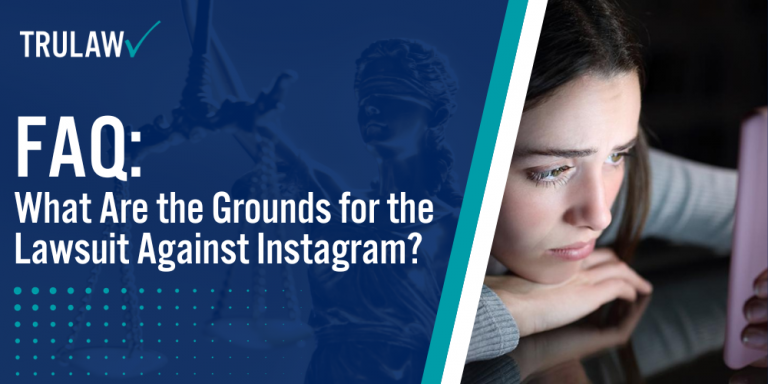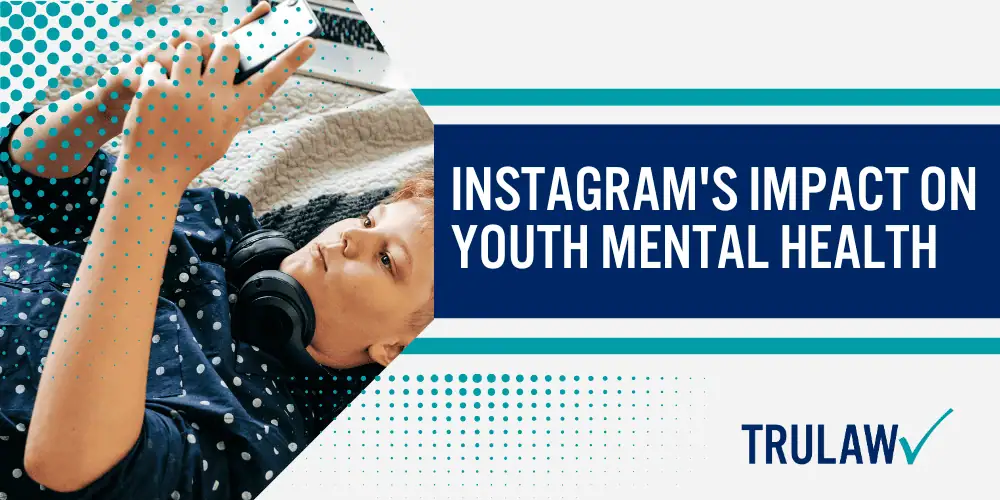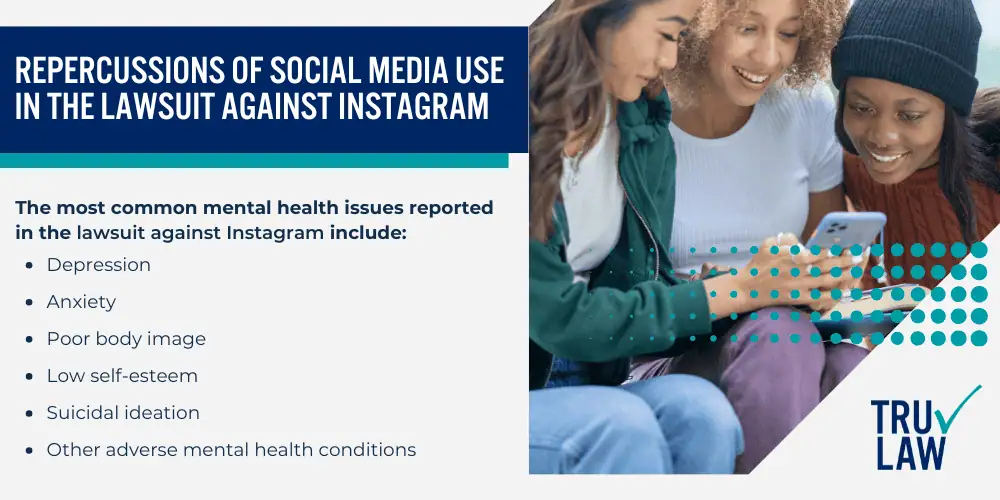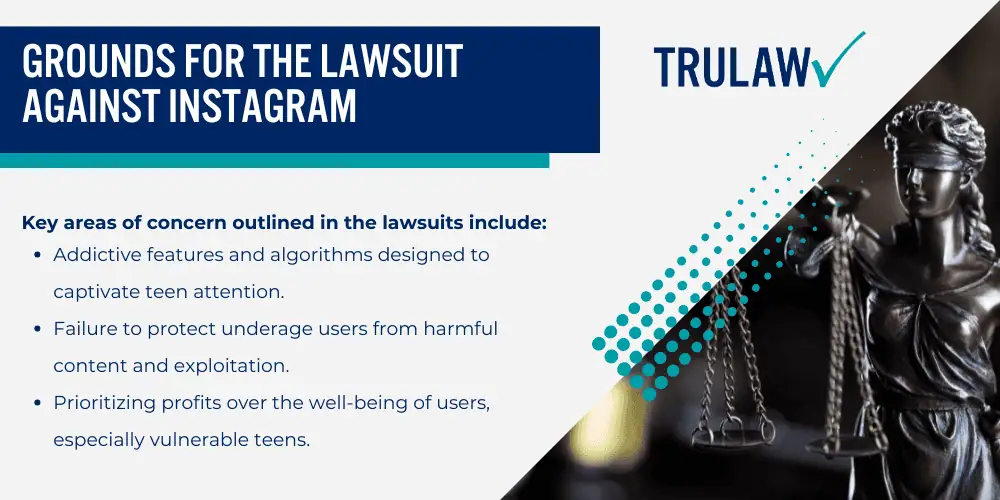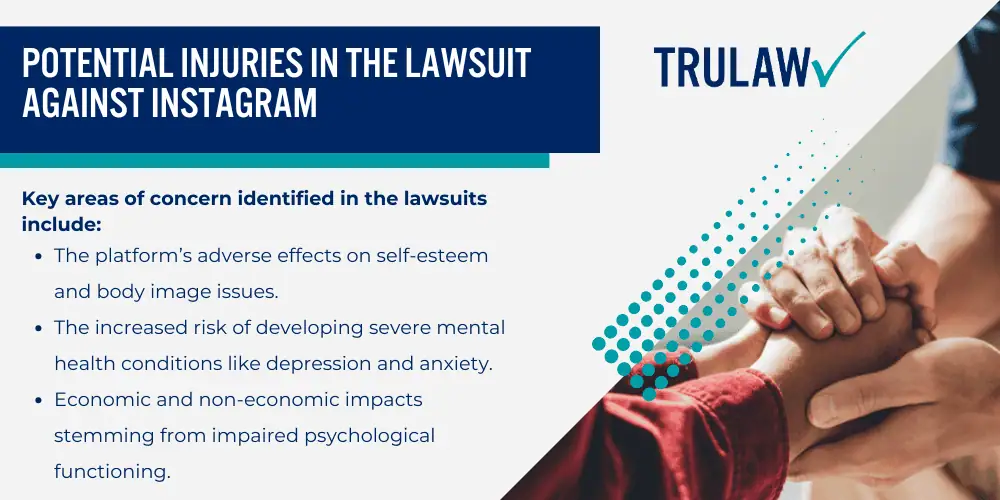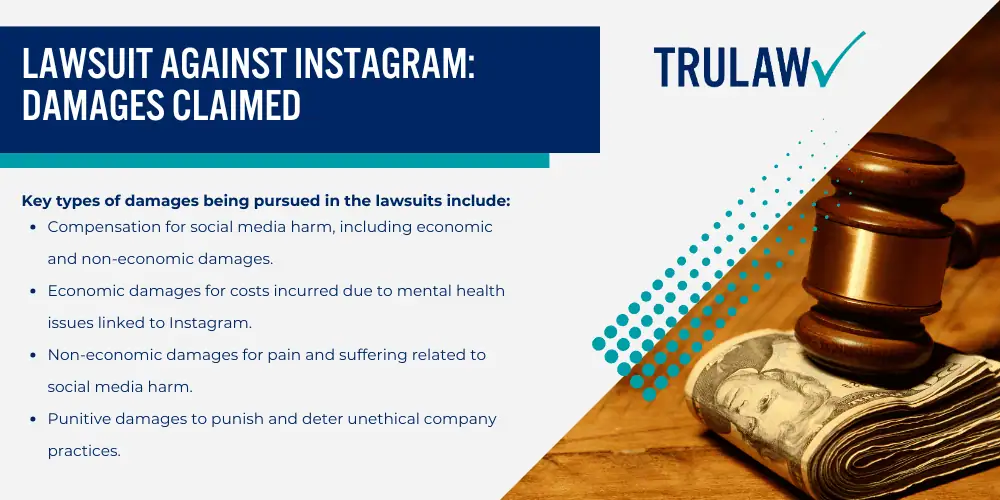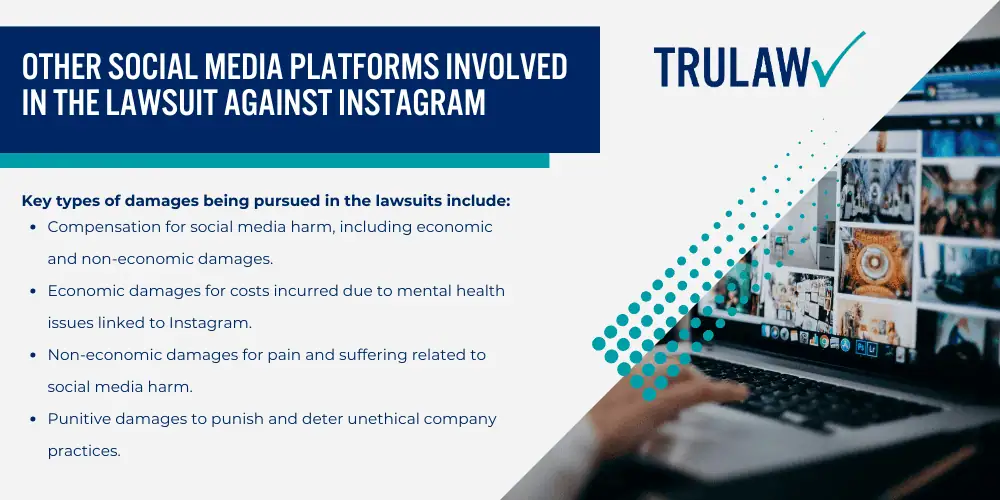Instagram, a popular social media platform with over 2 billion active users worldwide, has faced numerous legal challenges in recent years.
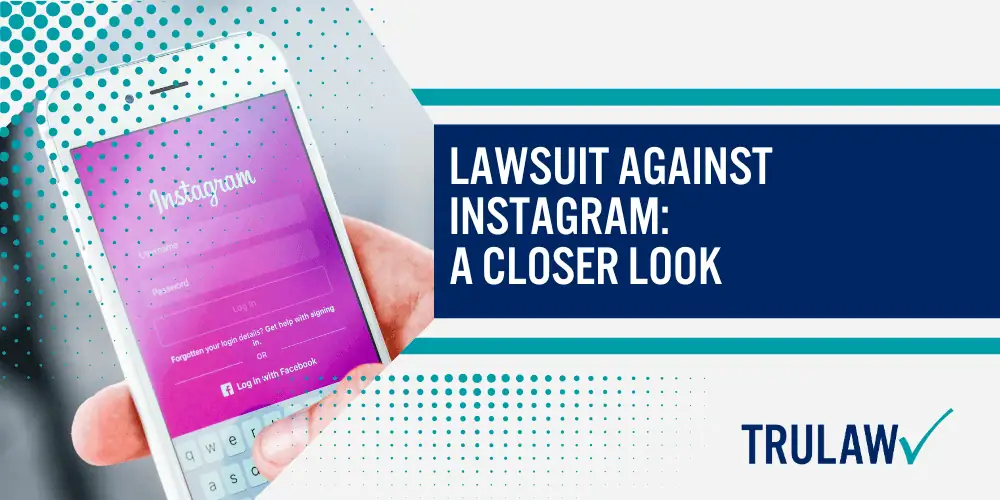
These lawsuits allege a wide range of harms caused by the platform, including addiction, mental health issues, and data privacy violations.
Instagram Addiction: Youth Mental Health Crisis
A significant number of reports in the lawsuit against Instagram focus on the platform’s potential to cause addiction and exacerbate mental health issues, particularly among adolescents and young adults.
These lawsuits allege that Instagram’s addictive design, algorithms, and content moderation practices contribute to excessive use, social comparison, and exposure to harmful content, leading to negative consequences such as anxiety, depression, and self-harm.
Data Privacy Violations
Another area of concern is Instagram’s handling of user data. Several lawsuits have accused the platform of violating data privacy laws by collecting and using user data without adequate consent or transparency.
These lawsuits allege that Instagram’s data practices have led to identity theft, targeted advertising, and other harm.
Notable Lawsuits Against Instagram
- 2020: A group of parents claimed that the platform’s algorithms promote addictive content and contribute to mental health issues in their children.
- 2021: New Jersey filed a lawsuit against Instagram, alleging that the platform’s data practices violate state consumer protection laws.
- 2022: A former Instagram employee filed a lawsuit against the company, alleging that it knowingly promoted addictive content and failed to protect users from harmful content.
- 2023: A major lawsuit was filed against Metam, the parent company of Instagram, by over three dozen states, including California and New York, highlighting serious concerns about social media’s impact on youth mental health.
- 2023: Meta Platforms agreed to a $68.5 million class action settlement from a previous litigation. The law that Instagram allegedly violated is known as the Biometric Information Protection Act (BIPA)
Impact of the Lawsuit Against Instagram
These lawsuits have brought significant attention to the potential harms associated with Instagram and have pressured the company to change its practices.
Instagram has taken steps to address these concerns, such as implementing new features to limit screen time and providing more resources for mental health awareness.
Ongoing Legal Challenges in the Lawsuit Against Instagram
Despite these changes, legal challenges against Instagram continue.
As the platform continues to evolve and its influence on users grows, these lawsuits will likely continue to shape its policies and practices.
The lawsuit against Instagram highlights the growing concerns surrounding the potential harm of social media platforms, particularly on young users.
These legal challenges have forced Instagram to confront these issues and take steps to mitigate the potential risks.
As social media continues to evolve, it is crucial to remain vigilant about the potential harm these platforms can cause and to hold them accountable for their actions.
